
In this April Issue of the Sustainable Marin Newsletter, we are honored to feature student guest writers and artists from Marin County grammar and high schools, who have been learning about compositing, its best practices, and sharing their knowledge and actions as environmental stewards.
Please enjoy reading and don’t forget to share and support Sustainable Marin and our committed mission to make Marin More Sustainable.
THE EASIEST ACTION: REDUCE FOOD WASTE
Did you know that food waste is the third largest emitter of Greenhouse gasses globally?
It is the largest single material in US landfills representing 24%.
When food goes to a landfill it degrades in the absence of oxygen which is called anerobic, and that process creates methane which is 80 times more potent/harmful than CO2. When food is composted, it breaks down with oxygen. Composting is the controlled aerobic decomposition of organic material and thus produces much less methane and has a beneficial use when finished and ready for market.
Read more here: https://calrecycle.ca.gov/Organics/SLCP/
In this April Issue of the Sustainable Marin Newsletter, we are honored to feature student guest writers and artists from Marin County grammar and high schools, who have been learning about compositing, its best practices, and sharing their knowledge and actions as environmental stewards.
Please enjoy reading and don’t forget to share and support Sustainable Marin and our committed mission to make Marin More Sustainable.
THE EASIEST ACTION: REDUCE FOOD WASTE
Did you know that food waste is the third largest emitter of Greenhouse gasses globally?
It is the largest single material in US landfills representing 24%.
When food goes to a landfill it degrades in the absence of oxygen which is called anerobic, and that process creates methane which is 80 times more potent/harmful than CO2. When food is composted, it breaks down with oxygen. Composting is the controlled aerobic decomposition of organic material and thus produces much less methane and has a beneficial use when finished and ready for market.
Read more here: https://calrecycle.ca.gov/Organics/SLCP/
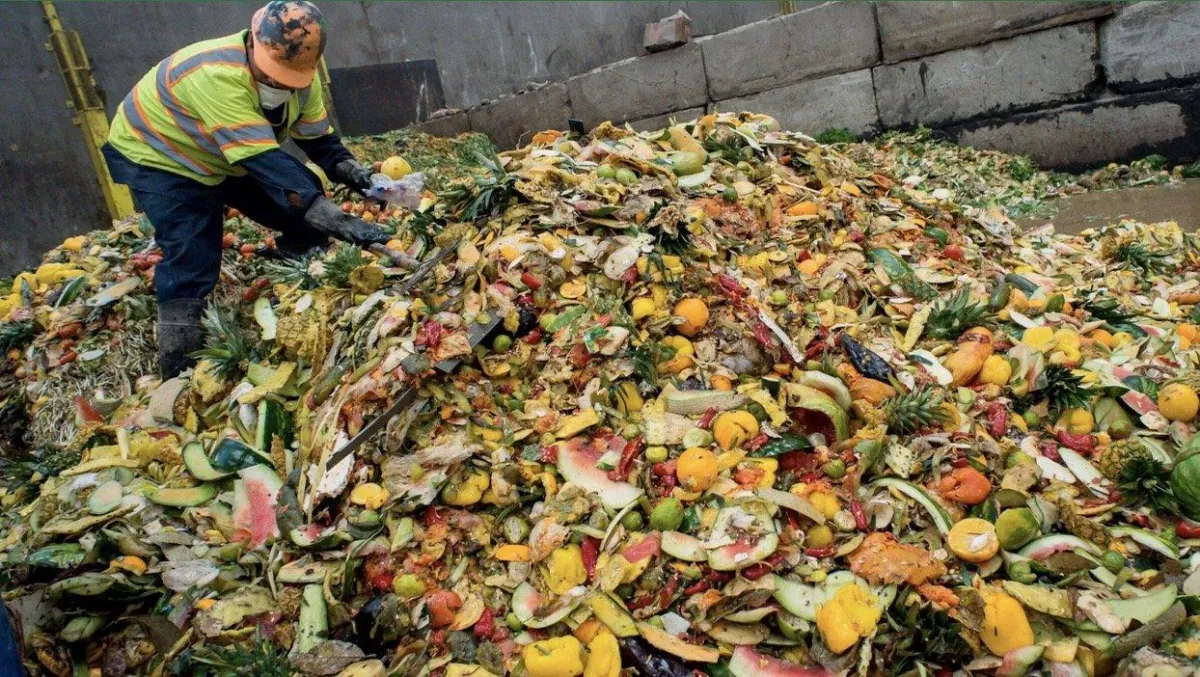
Photo Credit: Sarah Reingewirtz/ZUMA Press/Newscom
In the United States, people waste 80 million tons of food every year, which equals 149 billion meals. They throw away over $444 billion worth of food annually. Shockingly, they waste 38% of all the food in America (Source: Feeding America).
Most of us are conditioned to recycle our cans, bottles, and paper waste in our blue buckets.
But how many of us add food waste to our green bucket? When we picnic in the park, we have recycling and trash, but how many parks have composting available? Thankfully, Painted Bins is working with municipalities to install compost bins in parks.
For just under 2 years, Painted Bins has been creating environmental stewards in Marin’s communities. These elementary school children are learning about the importance of taking care of the earth by placing food scraps in the compost bin. Watch this below video to hear what the kids have to say and to understand the impact Painted Bins is making through their work with schools where the students create inspirational posters about composting, which are placed upon compost bins in schools, parks and public spaces throughout the community.
Please help Painted Bins to reach, engage and educate more schools and more students about compositing and sustainability by attending Trash Bash, their fundraiser on April 18th at the Mill Valley Community Center from 6-9pm Come see the amazing composting art created by students in this program and hear what they have to say about keeping waste from ending up in the landfill. Your support will help Painted Bins fight climate change by driving environmental awareness in more communities throughout Marin County.
And, if you can’t make it to the fundraiser, be sure to stop by the Mill Valley Community Center during the month of April to see the 91 posters created by 3rd, 4th and 5th graders from Mill Valley’s 5 elementary schools. This Painted Bins Art Show is open to the public Monday – Friday from 8:30am – 5:00pm.
From this grouping of posters, 10 posters will be selected for installation onto the Painted Bins that will be placed throughout Mill Valley late Spring of this year.
Painted Bins is a fiscally sponsored project of Sustainable Marin.
TEENS SPEAK UP
THE BENEFITS OF COMPOSTING
by Gabe Glover, 9th grade student, Terra Linda High School, San Rafael, CA

Photo Credit: Sarah Reingewirtz/ZUMA Press/Newscom
In the United States, people waste 80 million tons of food every year, which equals 149 billion meals. They throw away over $444 billion worth of food annually. Shockingly, they waste 38% of all the food in America (Source: Feeding America).
Most of us are conditioned to recycle our cans, bottles, and paper waste in our blue buckets.
But how many of us add food waste to our green bucket? When we picnic in the park, we have recycling and trash, but how many parks have composting available? Thankfully, Painted Bins is working with municipalities to install compost bins in parks.
For just under 2 years, Painted Bins has been creating environmental stewards in Marin’s communities. These elementary school children are learning about the importance of taking care of the earth by placing food scraps in the compost bin. Watch this below video to hear what the kids have to say and to understand the impact Painted Bins is making through their work with schools where the students create inspirational posters about composting, which are placed upon compost bins in schools, parks and public spaces throughout the community.
Please help Painted Bins to reach, engage and educate more schools and more students about compositing and sustainability by attending Trash Bash, their fundraiser on April 18th at the Mill Valley Community Center from 6-9pm Come see the amazing composting art created by students in this program and hear what they have to say about keeping waste from ending up in the landfill. Your support will help Painted Bins fight climate change by driving environmental awareness in more communities throughout Marin County.
And, if you can’t make it to the fundraiser, be sure to stop by the Mill Valley Community Center during the month of April to see the 91 posters created by 3rd, 4th and 5th graders from Mill Valley’s 5 elementary schools. This Painted Bins Art Show is open to the public Monday – Friday from 8:30am – 5:00pm.
From this grouping of posters, 10 posters will be selected for installation onto the Painted Bins that will be placed throughout Mill Valley late Spring of this year.
Painted Bins is a fiscally sponsored project of Sustainable Marin.
TEENS SPEAK UP
THE BENEFITS OF COMPOSTING
by Gabe Glover, 9th grade student, Terra Linda High School, San Rafael, CA
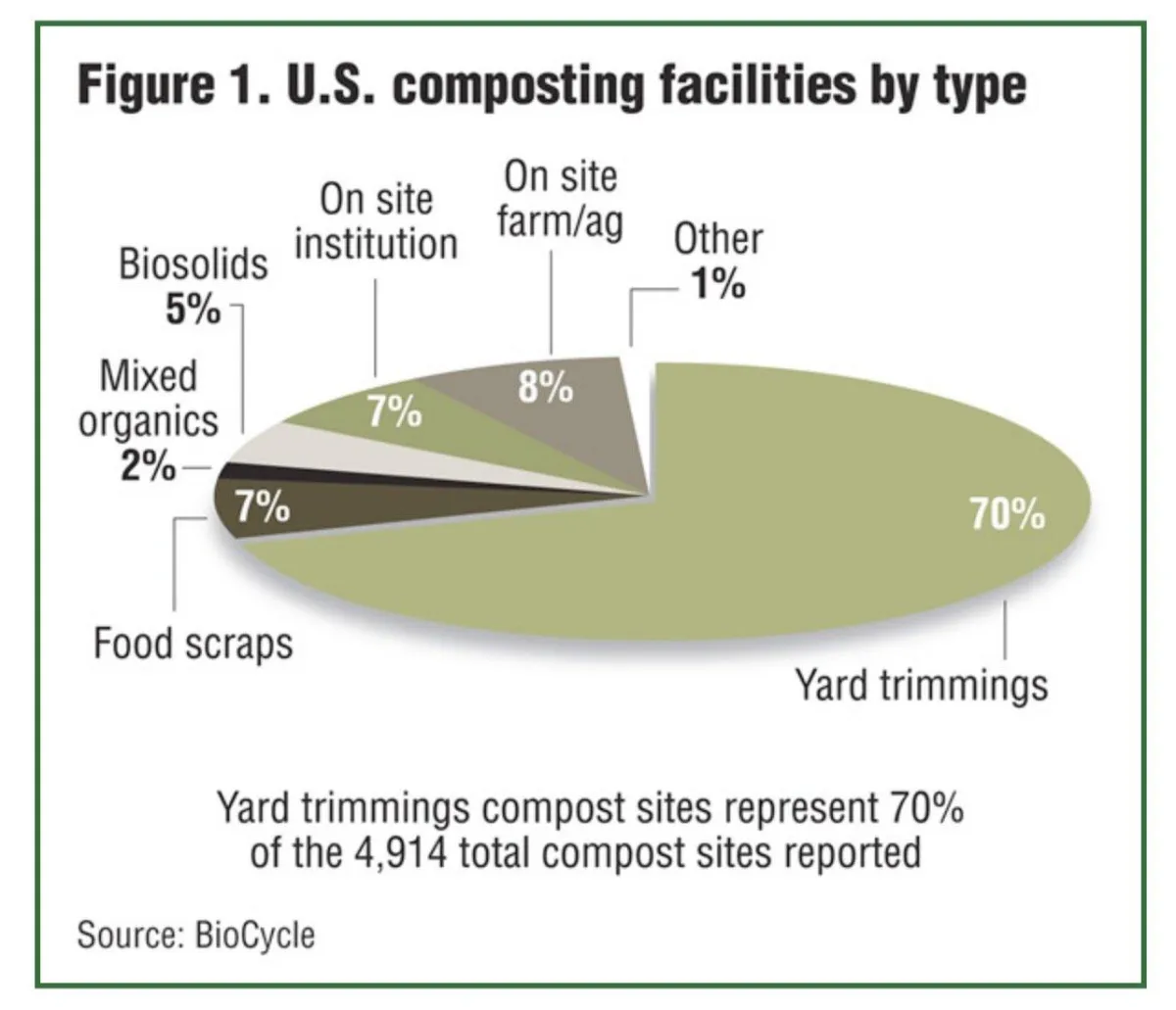
Composting is not a new idea - it has been around for thousands of years. Ancient civilizations used the technique of decomposing matter to improve the fertility of the soil.
Here in America, indigenous people would fertilize their crops by using manure and fish waste. enables water retention in soil and controls erosion.
Composting enables water retention in soil because compost has the ability to hold 20 times its weight in water.
Compost encourages healthier plant growth and can improve soil structure. Compost also adds essential nutrients to soil.
HOW MUCH FOOD GETS THROWN AWAY?
by Eloise Atkins, 9th grade student, Terra Linda High School, San Rafael, CA
Grocery stores are one of the major sources of food waste because of both (1) the amount of damaged produce being thrown away, and (2) the amount of food reaching its expiration or “sell by” dates. Instead of throwing away the damaged produce, grocery stores can give the produce to food pantries that need them to feed low income and disadvantaged members of society.

Composting is not a new idea - it has been around for thousands of years. Ancient civilizations used the technique of decomposing matter to improve the fertility of the soil.
Here in America, indigenous people would fertilize their crops by using manure and fish waste. enables water retention in soil and controls erosion.
Composting enables water retention in soil because compost has the ability to hold 20 times its weight in water.
Compost encourages healthier plant growth and can improve soil structure. Compost also adds essential nutrients to soil.
HOW MUCH FOOD GETS THROWN AWAY?
by Eloise Atkins, 9th grade student, Terra Linda High School, San Rafael, CA
Grocery stores are one of the major sources of food waste because of both (1) the amount of damaged produce being thrown away, and (2) the amount of food reaching its expiration or “sell by” dates. Instead of throwing away the damaged produce, grocery stores can give the produce to food pantries that need them to feed low income and disadvantaged members of society.
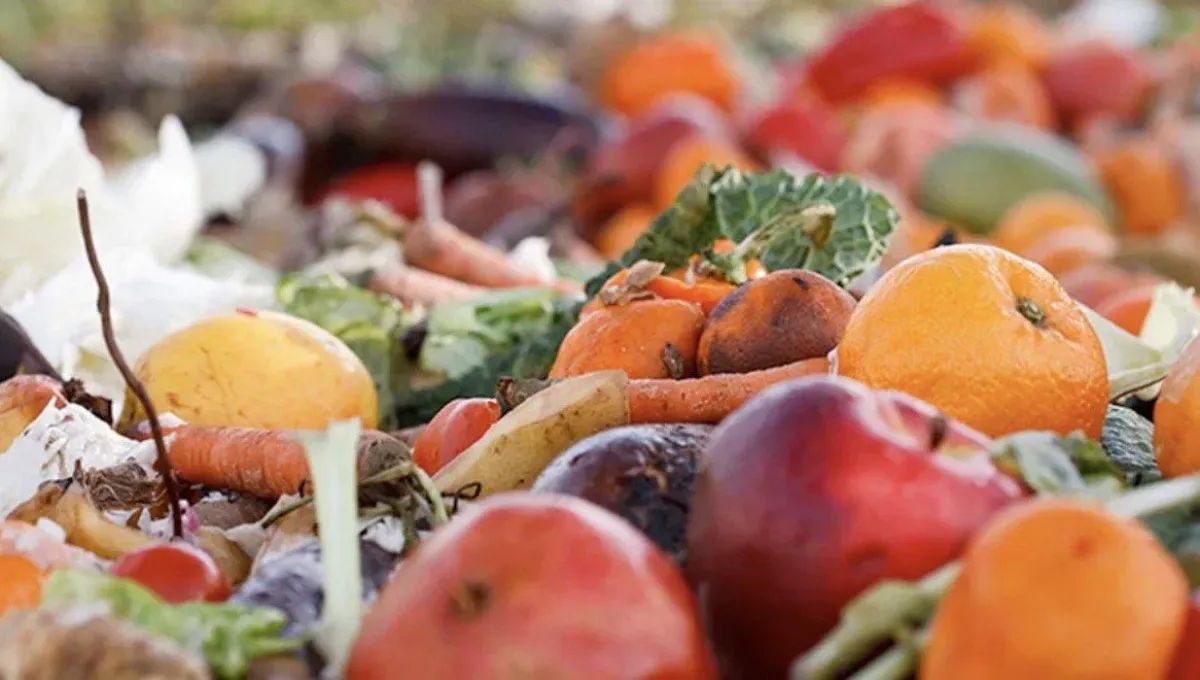
The other major source of food waste is from restaurants because of their improper employee training, overproduction, improper food storage, and lack of access to composting.
In the United States, food waste is estimated at between 30-40 percent of the food supply. This estimate, based on estimates from USDA’s Economic Research Service of 31 percent food loss at the retail and consumer levels, corresponded to approximately 133 billion pounds and $161 billion worth of food in 2010.
This amount of waste has far-reaching impacts on society:
>Wholesome food that could have helped feed families in need is sent to landfills.
>Land, water, labor, energy and other inputs are used in producing, processing, transporting, preparing, storing, and disposing of discarded food.
[Source: USDA]
TAKE ACTION:
>All your compostables — all food waste, yard waste, and food-soiled paper — should go in your green cart for curbside collection. Do not use plastics of any kinds - even biodegradable bags.
>Stop the grocery store throw away. Get or Gift or Send a box of this Imperfect Food every week that keeps it out of the land fills Grocery stores are not throwing away imperfect food; they are throwing away spoiled food.
>Donate to Extra Foods who recover excess fresh food from any Bay Area business, school, hospital, garden, or farm and immediately deliver the food to their nonprofit distribution partners serving our community’s most vulnerable people.
>Use or make people aware of the Too Good to Go App that lets one rescue unsold food at your favorite spots from an untimely fate. Use the app to explore stores and restaurants in your local area and save surprise bags of surplus food from going to waste at a great price.
IN THE NEWS:
THUMBS UP!
When Sean Rafferty got his start in the grocery business, anything that wasn’t sold got tossed out.
But on a recent day, Rafferty, the store manager for ShopRite of Elmsford-Greenburgh in New York, was preparing boxes of bread, donuts, fresh produce and dairy products to be picked up by a food bank. It’s part of a statewide program requiring larger businesses to donate edible food and, if they can, recycle remaining food scraps. (Source: AP Newswire)
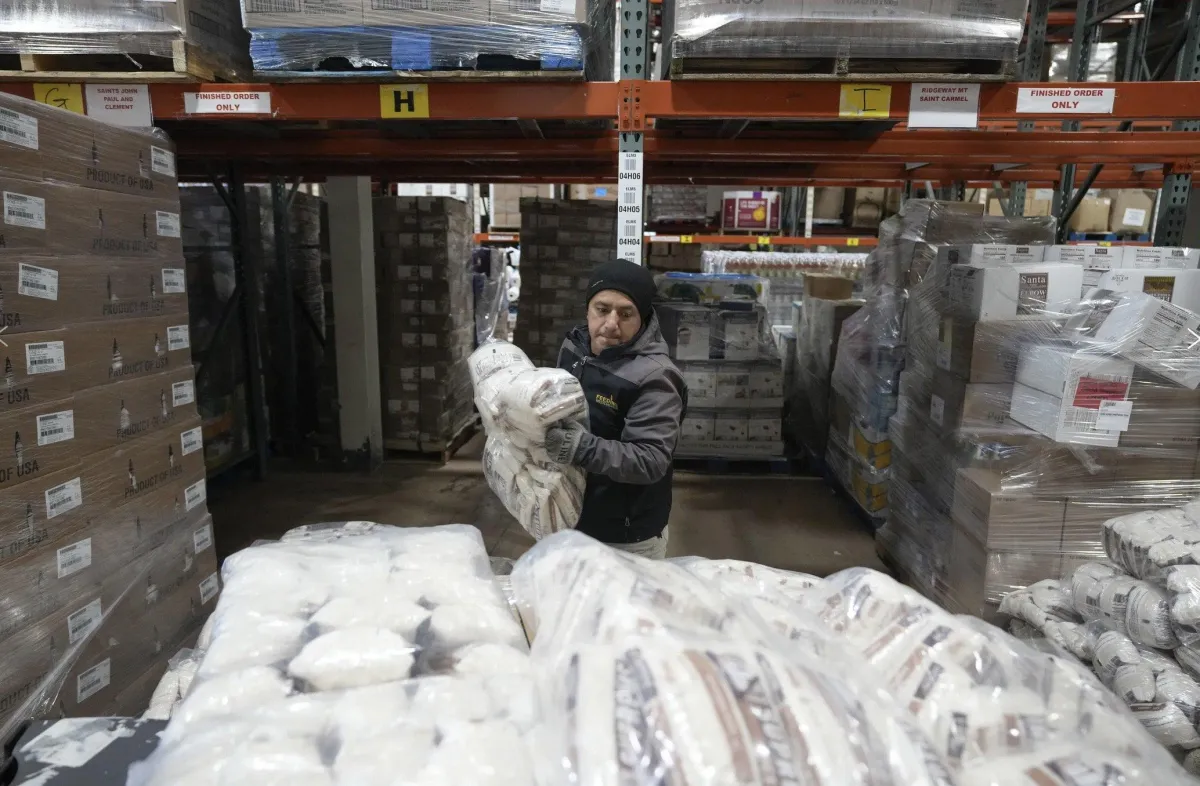
THUMBS DOWN!
Two years after California launched an effort to keep organic waste out of landfills, the state is so far behind on getting food recycling programs up and running that it’s widely accepted next year’s ambitious waste-reduction targets won’t be met.
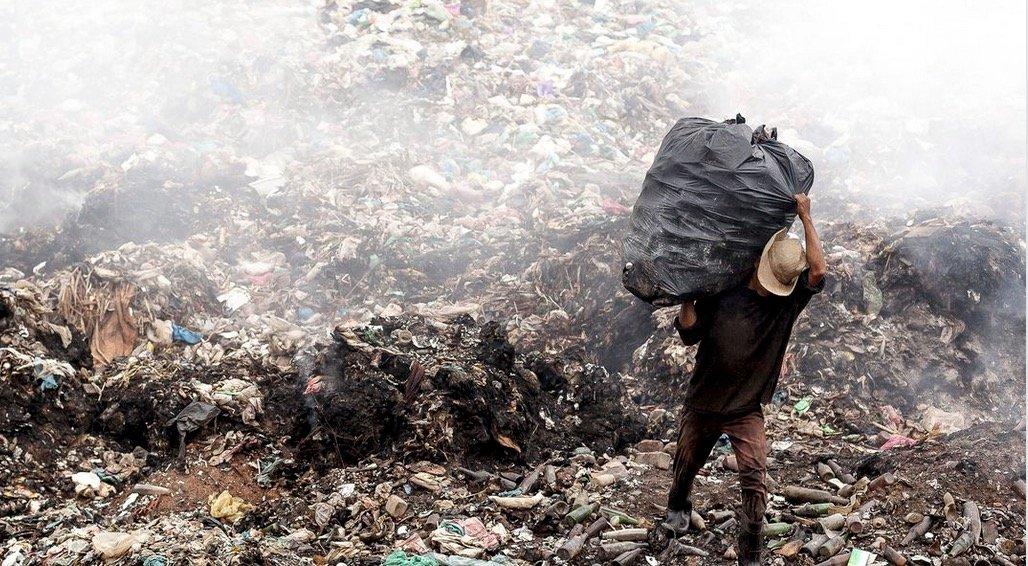
Over time, food scraps and other organic materials like yard waste emit methane, a gas more potent and damaging in the short-term than carbon emissions from fossil fuels.
California’s goal is to keep that waste from piling up in landfills, instead turning it into compost or biogas. [Source: AP Newswire].
And California is now very proactive about composting, as the new California Law SB 1383, which took effect in January, requires supermarkets and other big food providers to divert as much as a quarter of edible food now destined for dumps to food banks to feed the needy. [Source: LA Times]
It tasks cities and counties like Marin with formulating local plans, with a statewide goal of recovering 20% of edible food by 2025. [Source: Reuters]
This is the nation's first statewide law to require businesses to donate excess food to be eaten by hungry people. Compliance requirements, which will ultimately include fines, are being phased in. First, large grocery stores and food wholesalers; later, restaurants and cafeterias will have to comply or face fines. [Source: NPR]
California has over 200 composting and anaerobic digestion (AD) facilities, but in-state management options for processing more organic materials are challenging. Currently, in-state processing infrastructure is insufficient to properly handle all of the anticipated increases in collected organics.
As is true elsewhere, siting, permitting, and building new organics management facilities are formidable obstacles due to cross-regulatory requirements and, in some cases, lack of public acceptance.
In addition, the co-benefits of using compost (such as improved soil health, water conservation, and increased soil carbon) do not have a monetary value and are not well accounted for in typical market transactions.
[Source: BioCycle]
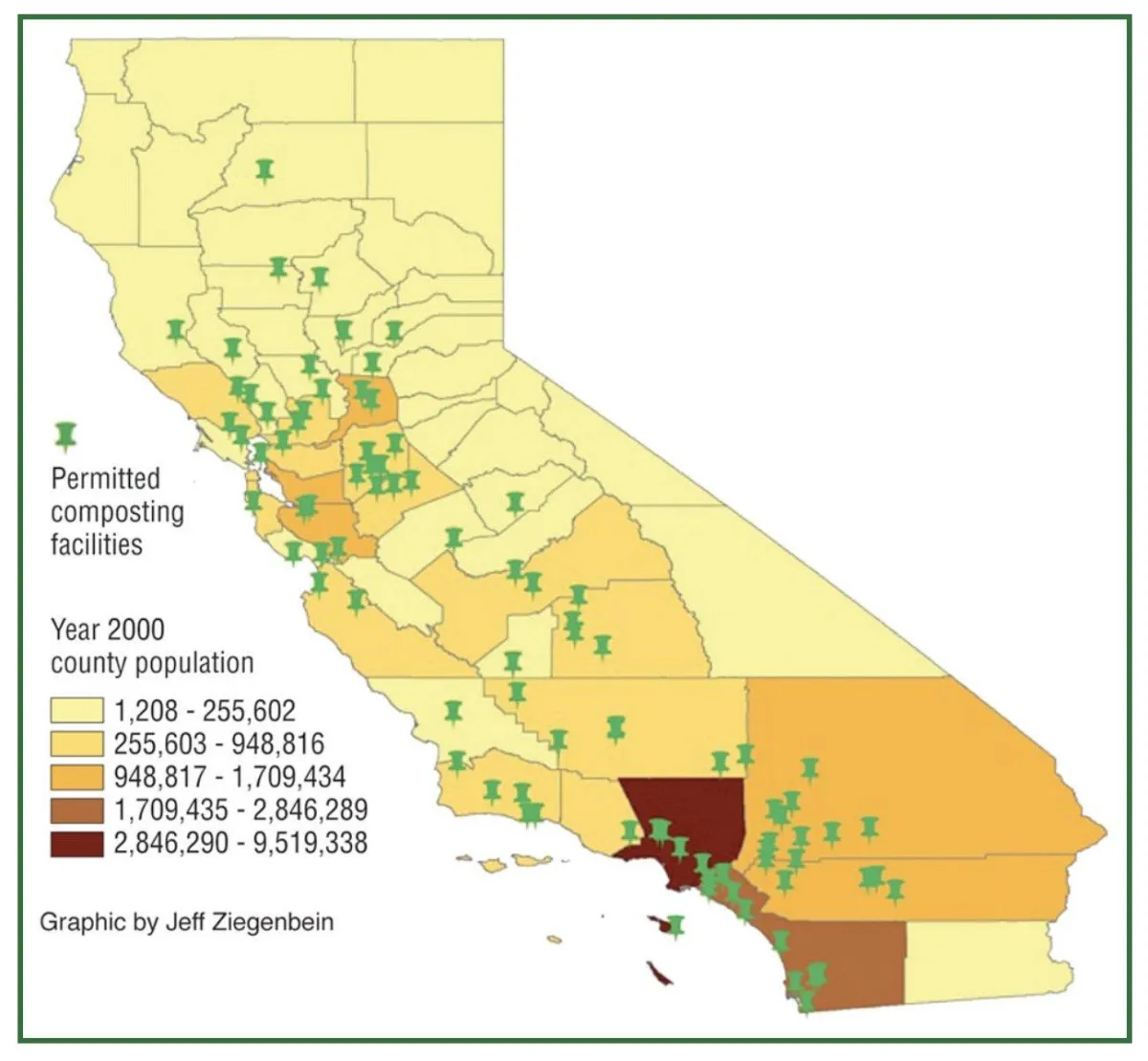
APRIL IS EARTH MONTH
What will your one action be to reduce our greenhouse gasses? Find out what you can do at Make a Pledge https://greenchange.net/action/ and then let us know at [email protected]. Let us know if we can post your actions on our Facebook page.
THE BEST ECO-FRIENDLY HOME IMPROVEMENTS FOR LESS THAN $100
What if you had only $100 to invest in a cheaper, cleaner home? Or $10? Or even just $1?
The conversation about cutting your emissions is often about replacing big-ticket items like stoves, furnaces and cars. But millions of people are neither ready nor able to spend thousands of dollars. What if you didn’t need to?
CAMINO EARTH WALK
On May 14th Sustainable Marin President, Wendi Kallins, will be doing an Earth Walk on the Camino in Spain to the end of the Earth (Finnisterra) to save the Earth.
She has started training and has already walked 10 miles in one day. Won’t you donate to her walk to support Sustainable Marin?
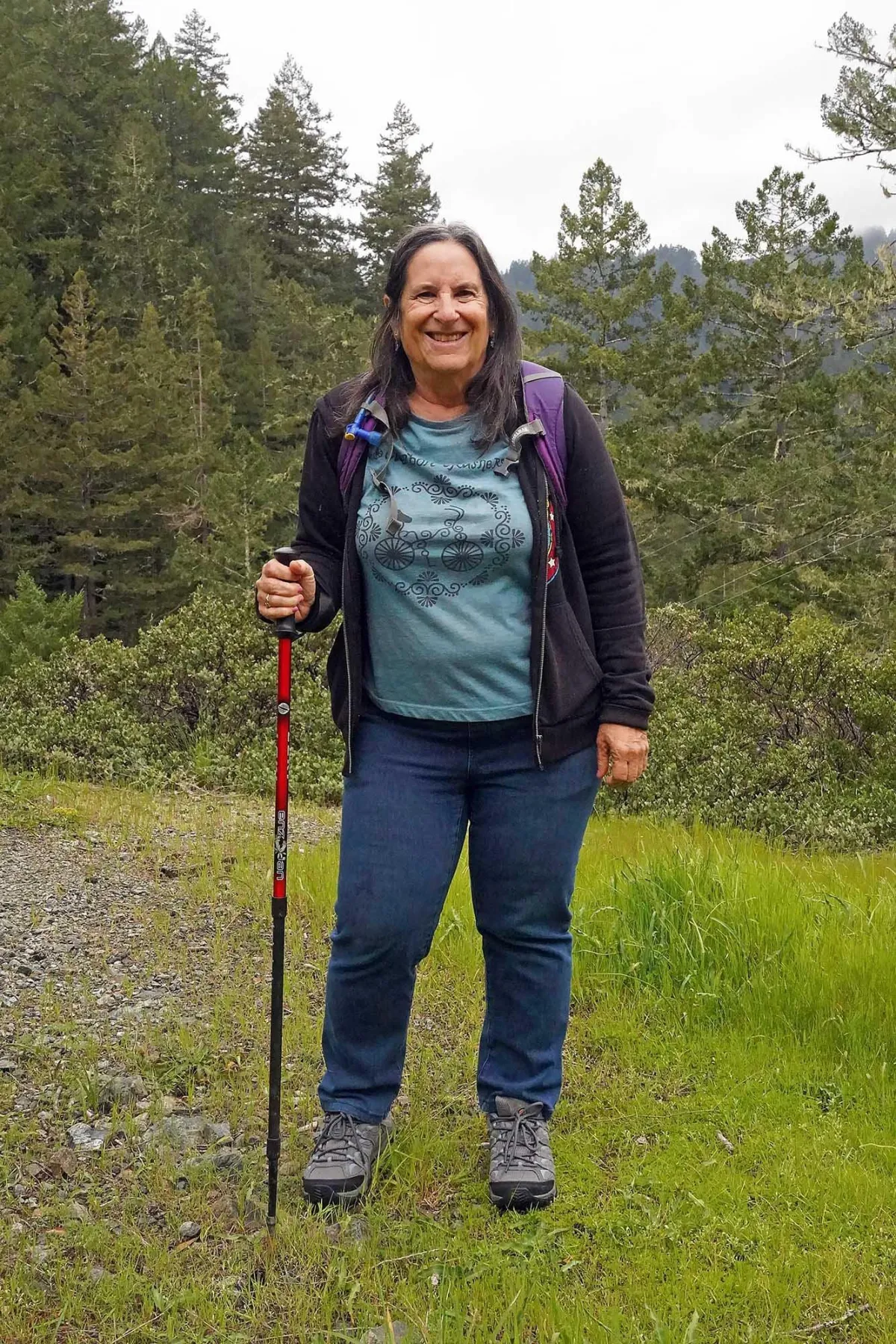

The other major source of food waste is from restaurants because of their improper employee training, overproduction, improper food storage, and lack of access to composting.
In the United States, food waste is estimated at between 30-40 percent of the food supply. This estimate, based on estimates from USDA’s Economic Research Service of 31 percent food loss at the retail and consumer levels, corresponded to approximately 133 billion pounds and $161 billion worth of food in 2010.
This amount of waste has far-reaching impacts on society:
>Wholesome food that could have helped feed families in need is sent to landfills.
>Land, water, labor, energy and other inputs are used in producing, processing, transporting, preparing, storing, and disposing of discarded food.
[Source: USDA]
TAKE ACTION:
>All your compostables — all food waste, yard waste, and food-soiled paper — should go in your green cart for curbside collection. Do not use plastics of any kinds - even biodegradable bags.
>Stop the grocery store throw away. Get or Gift or Send a box of this Imperfect Food every week that keeps it out of the land fills Grocery stores are not throwing away imperfect food; they are throwing away spoiled food.
>Donate to Extra Foods who recover excess fresh food from any Bay Area business, school, hospital, garden, or farm and immediately deliver the food to their nonprofit distribution partners serving our community’s most vulnerable people.
>Use or make people aware of the Too Good to Go App that lets one rescue unsold food at your favorite spots from an untimely fate. Use the app to explore stores and restaurants in your local area and save surprise bags of surplus food from going to waste at a great price.
IN THE NEWS:
THUMBS UP!
When Sean Rafferty got his start in the grocery business, anything that wasn’t sold got tossed out.
But on a recent day, Rafferty, the store manager for ShopRite of Elmsford-Greenburgh in New York, was preparing boxes of bread, donuts, fresh produce and dairy products to be picked up by a food bank. It’s part of a statewide program requiring larger businesses to donate edible food and, if they can, recycle remaining food scraps. (Source: AP Newswire)

THUMBS DOWN!
Two years after California launched an effort to keep organic waste out of landfills, the state is so far behind on getting food recycling programs up and running that it’s widely accepted next year’s ambitious waste-reduction targets won’t be met.

Over time, food scraps and other organic materials like yard waste emit methane, a gas more potent and damaging in the short-term than carbon emissions from fossil fuels.
California’s goal is to keep that waste from piling up in landfills, instead turning it into compost or biogas. [Source: AP Newswire].
And California is now very proactive about composting, as the new California Law SB 1383, which took effect in January, requires supermarkets and other big food providers to divert as much as a quarter of edible food now destined for dumps to food banks to feed the needy. [Source: LA Times]
It tasks cities and counties like Marin with formulating local plans, with a statewide goal of recovering 20% of edible food by 2025. [Source: Reuters]
This is the nation's first statewide law to require businesses to donate excess food to be eaten by hungry people. Compliance requirements, which will ultimately include fines, are being phased in. First, large grocery stores and food wholesalers; later, restaurants and cafeterias will have to comply or face fines. [Source: NPR]
California has over 200 composting and anaerobic digestion (AD) facilities, but in-state management options for processing more organic materials are challenging. Currently, in-state processing infrastructure is insufficient to properly handle all of the anticipated increases in collected organics.
As is true elsewhere, siting, permitting, and building new organics management facilities are formidable obstacles due to cross-regulatory requirements and, in some cases, lack of public acceptance.
In addition, the co-benefits of using compost (such as improved soil health, water conservation, and increased soil carbon) do not have a monetary value and are not well accounted for in typical market transactions.
[Source: BioCycle]

APRIL IS EARTH MONTH
What will your one action be to reduce our greenhouse gasses? Find out what you can do at Make a Pledge https://greenchange.net/action/ and then let us know at [email protected]. Let us know if we can post your actions on our Facebook page.
THE BEST ECO-FRIENDLY HOME IMPROVEMENTS FOR LESS THAN $100
What if you had only $100 to invest in a cheaper, cleaner home? Or $10? Or even just $1?
The conversation about cutting your emissions is often about replacing big-ticket items like stoves, furnaces and cars. But millions of people are neither ready nor able to spend thousands of dollars. What if you didn’t need to?
CAMINO EARTH WALK
On May 14th Sustainable Marin President, Wendi Kallins, will be doing an Earth Walk on the Camino in Spain to the end of the Earth (Finnisterra) to save the Earth.
She has started training and has already walked 10 miles in one day. Won’t you donate to her walk to support Sustainable Marin?

OUR FAVORITE EVENT PICKS OF THE MONTH
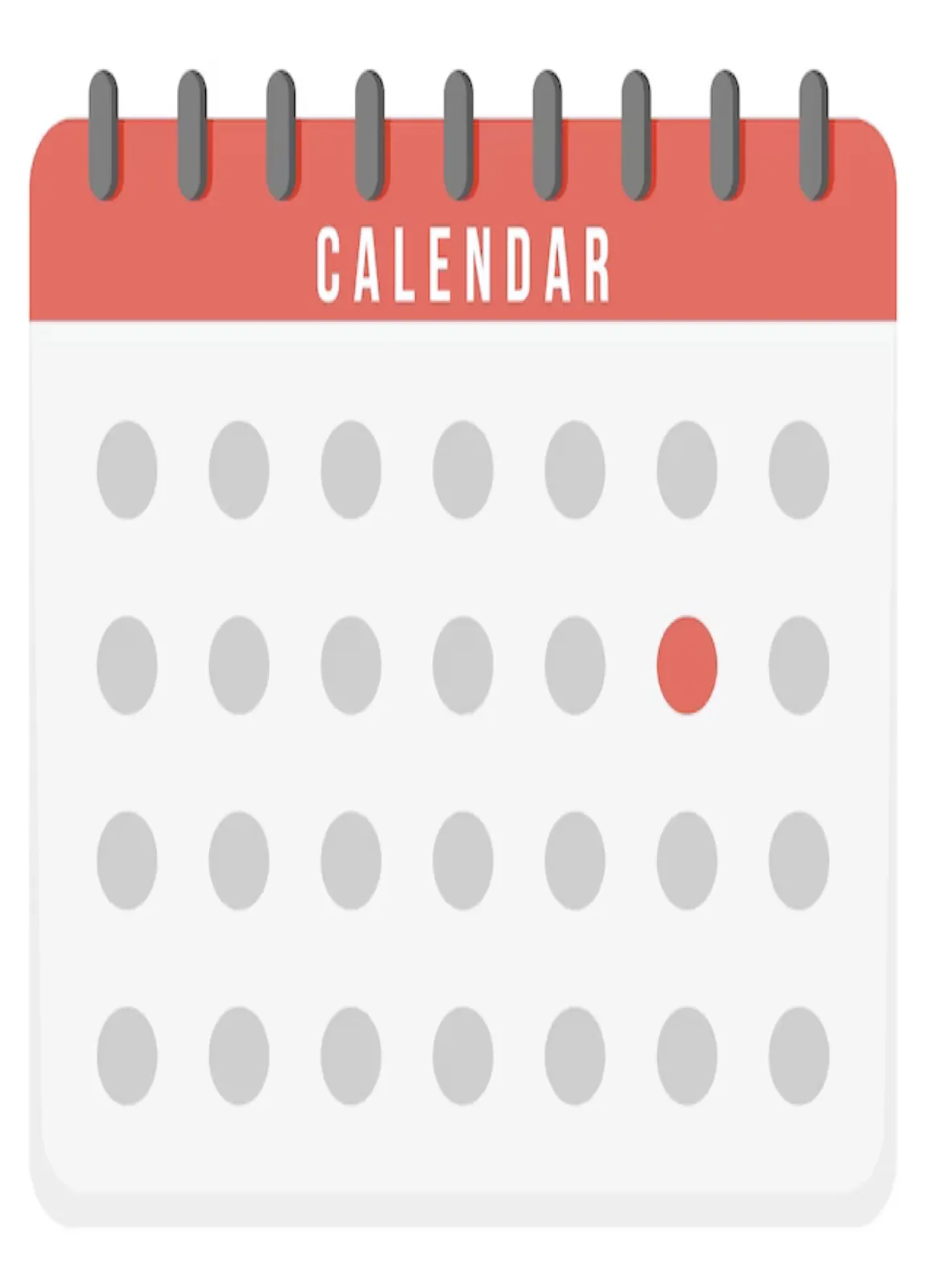
4/18, 6 pm - 9 pm - Trash Bash, a Painted Bins’ Fundraiser, Mill Valley Community Center.
4/20, 11 am - 3 pm - Climate Fest San Geronimo Valley Community Center interns from NextGen Greenstitch Climate Action, Fibershed, and Red Twig Farm present: Climate Fest on Earth Day! This free event celebrates our Earth and highlights the importance of climate change prevention and protection!
4/21, 11 am - 2 pm - EV & E-bike Show (Ride and Drive Clean) at Mill Valley Middle School Ride and Drive Clean will be facilitating an EV and Ebike Show at the same time next door at the Mill Valley Middle School. The New Wheel will be providing Ebike test rides
4/21, 11 am - 2 pm - Earth Day Mill Valley at Mill Valley Community Center Earth Day Mill Valley is a family-friendly event, featuring fun activities and green exhibits for all ages, in a beautiful outdoor setting. Dozens of booths hosted by environmental and community groups will help participants build a more just and sustainable world. You will learn about living sustainably, using clean energy and transportation, greening up your home and garden, eating healthy food, protecting nature, and building resilient communities.
4/27, 12:30 pm - 2:30 pm - Earth Day at Marin City Library. We'll make recycled planters, seed bombs, and micro-composters, enjoy an Earth Day story, and learn small and large ways to make a difference.
5/2, 8 am -5 pm - The 2024 Zero Waste Symposium will be held Thursday, with a happy hour to follow. Learn about reuse, recycling, redesigning, and rethinking our waste systems locally and cutting-edge information in this space. Save your seat at: www.zerowastenorthbay.org. See the launch of their Spring Campaign focused on food waste.
For more events, see the Green Change Events Calendar and the Ride Drive Clean Events Calendar
OUR FAVORITE EVENT PICKS OF THE MONTH

4/18, 6 pm - 9 pm - Trash Bash, a Painted Bins’ Fundraiser, Mill Valley Community Center.
4/20, 11 am - 3 pm - Climate Fest San Geronimo Valley Community Center interns from NextGen Greenstitch Climate Action, Fibershed, and Red Twig Farm present: Climate Fest on Earth Day! This free event celebrates our Earth and highlights the importance of climate change prevention and protection!
4/21, 11 am - 2 pm - EV & E-bike Show (Ride and Drive Clean) at Mill Valley Middle School Ride and Drive Clean will be facilitating an EV and Ebike Show at the same time next door at the Mill Valley Middle School. The New Wheel will be providing Ebike test rides
4/21, 11 am - 2 pm - Earth Day Mill Valley at Mill Valley Community Center Earth Day Mill Valley is a family-friendly event, featuring fun activities and green exhibits for all ages, in a beautiful outdoor setting. Dozens of booths hosted by environmental and community groups will help participants build a more just and sustainable world. You will learn about living sustainably, using clean energy and transportation, greening up your home and garden, eating healthy food, protecting nature, and building resilient communities.
4/27, 12:30 pm - 2:30 pm - Earth Day at Marin City Library. We'll make recycled planters, seed bombs, and micro-composters, enjoy an Earth Day story, and learn small and large ways to make a difference.
5/2, 8 am -5 pm - The 2024 Zero Waste Symposium will be held Thursday, with a happy hour to follow. Learn about reuse, recycling, redesigning, and rethinking our waste systems locally and cutting-edge information in this space. Save your seat at: www.zerowastenorthbay.org. See the launch of their Spring Campaign focused on food waste.
For more events, see the Green Change Events Calendar and the Ride Drive Clean Events Calendar
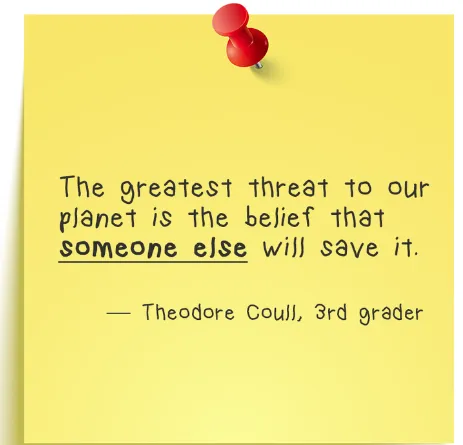
SUSTAINABLE MARIN.ORG
ADDRESS:
P.O. BOX 1822
ROSS, CA 94957
SUSTAINABLE MARIN IS A 501(c)3 NON-PROFIT CORPORATION, EXEMPT FROM FEDERAL TAX UNDER SECTION 501(c)(3) OF THE IRS
EIN# 94-3308034
SUSTAINABLE MARIN.ORG
ADDRESS:
P.O. BOX 1822
ROSS, CA 94957
SUSTAINABLE MARIN IS A 501(c)3 NON-PROFIT CORPORATION, EXEMPT FROM FEDERAL TAX UNDER SECTION 501(c)(3) OF THE IRS
EIN# 94-3308034




